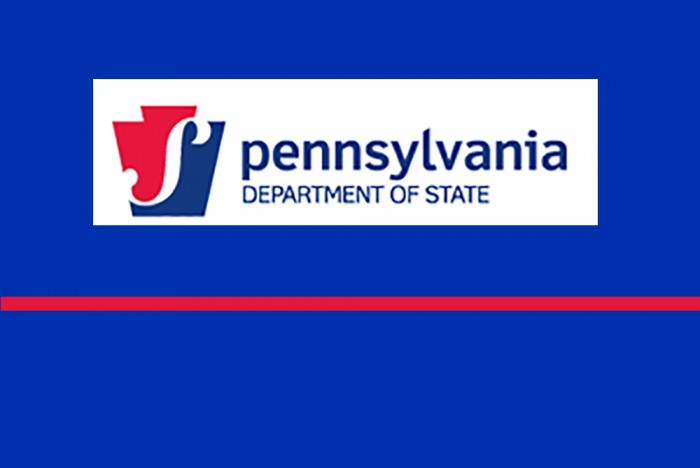Governor Wolf: Essential Services for Vulnerable Populations Will Continue
FOR IMMEDIATE RELEASE
March 27, 2020
Harrisburg, PA – Today, Governor Tom Wolf issued a statement to reassure all Pennsylvanians that essential services critical to the lives, health and safety of vulnerable populations will continue regardless of actions taken to slow the spread of COVID-19.
“Under no circumstances will this administration withdraw life-sustaining services from Pennsylvanians who depend on these support systems,” Gov. Wolf said. “My commitment to maintaining essential services is uncompromised by the COVID-19 pandemic. We will not abandon older adults, individuals with disabilities, low-income families, children or any other vulnerable population during this challenging time. This administration will continue to do everything in our power to ensure that the most vulnerable among us continue to receive the services and supports they need and on which they depend.”
Specifically, the governor cited the following services and supports that will continue throughout the COVID-19 response regardless of mitigation strategies or the severity of the situation:
- Food assistance through charitable food networks, which are life-sustaining, essential services;
- Processing of applications and renewals for benefits, including the Supplemental Nutrition Assistance Program (SNAP), Temporary Assistance for Needy Families (TANF), the Children’s Health Insurance Program (CHIP), and Medical Assistance as well as the Low Income Home Energy Assistance Program (LIHEAP) until the LIHEAP season ends on April 10.
- Prompt investigations of abuse and neglect complaints involving children, adults with disabilities and older adults
- Long-term care supports for older adults and individuals with disabilities served through providers licensed by the Department of Human Services’ Office of Long-Term Living, including personal care homes and in-home care providers;
- Home and community-based supports for individuals with intellectual disabilities and autism who receive services through providers enrolled with or licensed by the Department of Human Services’ Office of Developmental Programs;
- In-patient and out-patient behavioral health services for individuals with mental illness and substance use disorders through providers licensed by the Department of Human Services’ Office of Mental Health and Substance Abuse Services;
- High-quality care for individuals residing at state-operated facilities, including state centers, state hospitals, youth development centers and youth forestry camps;
- All services of the child-welfare system – including foster care, adoption, child abuse reporting and investigation – provided by the Department of Human Services’ Office of Children, Youth and Families (OCYF) and OCYF-licensed providers, including county agencies;
This is not an exhaustive list of services that will continue regardless of circumstances.
“This is an all-hands-on-deck operation to save lives and maintain essential services. I want to thank the workers on the front lines of this crisis and acknowledge the personal sacrifice many of them are making because they are dedicated to serving vulnerable populations,” said Department of Human Services Secretary Teresa Miller. “I also want to assure these workers that the Wolf Administration is focused on doing everything we can to support and protect you. Please know that your efforts are appreciated and we are committed to supporting you through this crisis.”
Visit the PA Department of Health’s dedicated Coronavirus webpage for the most up-to-date information regarding COVID-19.
Guidance to DHS providers related to COVID-19 is available here.
MEDIA CONTACT: Erin James, 717-425-7606
# # #
MITC Offers Providers Free Software for Duration of Emergency
To help providers manage the COVID-19 emergency, MITC is providing two easy-to-set up applications free of charge.
- The existing offer to provide myCommunications free of charge has been extended to 6/30/2020
- myMileage and Expenses is now available free of charge for 180 days
myCommunications helps providers maintain contact with their staff without relying on employees’ personal email addresses – very important right now. Download the fact sheet to learn more!
myMileage and Expenses allows staff to submit expense claims without having to come into the office. It also helps to make sure staff don’t suffer reimbursement delays for mileage, etc. – minimizes personal interactions. Download the fact sheet to learn more!
Unfortunately, MITC cannot provide the software without one-on-one training, as the surge in Software Requests would compromise our ability to respond at the level customers expect.
- myCommunications one-on-one set up and training – $360.00 (3 hours).
- myMileage and Expenses one-on-one set up and training – $360.00 (3 hours).
For more information, email [email protected].
Please join us for a special free webinar on Thursday, April 2 at 2:00 pm EDT to learn more about software that can help providers manage this emergency, and other more routine emergencies like snow days!
Register Here
Additionally, MITC is offering a webinar on Monday, March 30 at 2:00 pm as follows:
HR 6201, the Families First Coronavirus Response Act, has been signed. Join us for an emergency webinar on Monday, March 30 at 2:00 pm EDT to learn more about the Emergency Sick Pay Law and how to track sick and FLMA pay.
- There are multiple rates of sick pay (paid at regular pay, paid at lower rate with a $ cap).
- Impacts all organizations with less than 500 employees.
Family First Coronavirus Response Act & Unemployment Overview
CMS Approves Pennsylvania’s 1135 Waiver
Pennsylvania MAAC Drafts Resolution for Resource Allocation
Early this morning, the Pennsylvania Medical Assistance Advisory Committee (MAAC) unanimously approved the following:
Resolution by the Pennsylvania Medical Assistance Advisory Committee (MAAC) Urging Governor Wolf to Develop Principles and Guidelines for Allocating Lifesaving Resources and MA Funding During COVID-19 Crisis
Recognizing that Pennsylvania will have limited hospital capacity to respond to the grim epidemiological projections associated with the COVID-19 virus:
The Medical Assistance Advisory Committee of the Commonwealth of Pennsylvania (MAAC) urges Governor Wolf to develop and release principles and guidelines (Guidelines) for how scarce lifesaving resources (e.g., ICU units, personal protective equipment (PPE), ventilators, and any emerging & recommended anti-viral pharmaceutical interventions) will be equitably allocated in response to the COVID-19 pandemic.
Guidelines and principles must ensure that when it comes to the allocation of life-saving treatment:
- Patients are not discriminated against because of their Medical Assistance Insurance status; and
- People with disabilities are not given lower priority because of pre-existing disabilities, even when those conditions require more scarce resources.
In developing guidelines for allocating lifesaving resources, we urge the Governor to consult with the Hospital Association of Pennsylvania, the Pennsylvania Medical Society, the Pennsylvania Association of Community Health Centers, and provider and advocacy organizations representing older adults and people with disabilities, whose constituencies are represented among our membership.
Medical ethicists should also be included to help ensure an ethical framework, and the established guidelines should be messaged by the Governor and made available to health care providers and the public.
Furthermore, the MAAC resolves and urges to the Governor and Secretary of the Pennsylvania Department of Human Services (DHS) to utilize all of the additional funds received as a result of the enhanced Federal Medical Assistance Percentage (FMAP) provision contained in the Families First Coronavirus Response Act (HR 6201) and other Acts to provide for the care, services, and equipment necessary to meet the needs of Pennsylvania’s Medical Assistance participants and those providing their care and services.
Governor Wolf and Health Secretary Expand ‘Stay at Home’ Order to Nine More Counties
PA Extends License Renewal Deadlines for Nurses and Others During Coronavirus Emergency
The Small Business Owners Guide to the CARES Act
The programs and initiatives in the Coronavirus Aid, Relief, and Economic Security (CARES) Act that was just passed by Congress are intended to assist business owners with whatever needs they have right now. When implemented, there will be many new resources available for small businesses, as well as certain nonprofits and other employers. This guide provides information about the major programs and initiatives that will soon be available from the Small Business Administration (SBA) to address these needs, as well as some additional tax provisions that are outside the scope of SBA.
Do you need:
- Capital to cover the cost of retaining employees? Then the Paycheck Protection Program might be right for you.
- A quick infusion of a smaller amount of cash to cover you right now? You might want to look into an Emergency Economic Injury Grant.
- To ease your fears about keeping up with payments on your current or potential SBA loan? The Small Business Debt Relief Program could help.
- Just some quality, free counseling to help you navigate this uncertain economic time? The resource partners might be your best bet.
This guide provides detailed information and Q&A regarding:
- Paycheck Protection Program Loans;
- Small Business Debt Relief Program;
- Economic Injury Disaster Loans & Emergency Economic Injury Grants;
- Small Business Counseling;
- Small Business Contracting; and
- Small Business Tax Provisions.
Materials from March 2020 MAAC meeting
The Medical Assistance Advisory Committee (MAAC) met on March 24, 2020. OLTL and ODP delivered the below presentations, providing significant details to this advisory group. RCPA President/CEO Richard S. Edley, PhD, serves on the MAAC and will be able to answer questions you have about these presentations during our Membership Meeting this Friday, March 27, at 3:30 pm. Please send any questions to Allison Brognia prior to the meeting.
















